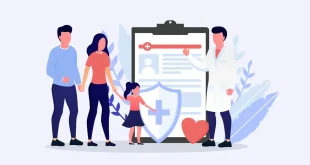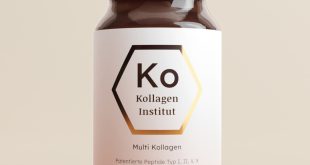In this article, we will explore the topic of Intensive Outpatient Programs (IOP) in San Diego, providing a
comprehensive guide to this form of outpatient addiction treatment. We will delve into the benefits of IOP, the treatment process, available services, and the importance of seeking professional help for addiction recovery. If you or someone you know is struggling with addiction, understanding the options for treatment can make a significant difference in the recovery journey.
Understanding Addiction and the Need for Treatment
Addiction is a complex and chronic condition that affects individuals physically, mentally, and emotionally.
It is characterized by a compulsive and uncontrollable desire to engage in harmful behaviors, despite the
negative consequences they may bring. Substance abuse can have devastating effects on an individual’s
health, relationships, and overall well-being.
Recognizing the need for treatment is the first step towards recovery. Many individuals with addiction find it challenging to overcome their struggles alone. Professional help, such as that offered by IOPs, can
provide the necessary support and guidance to break free from the cycle of addiction.
What is an IOP?
An Intensive Outpatient Program (IOP) is a structured form of addiction treatment that allows individuals
to receive comprehensive care while living at home or in a supportive environment. IOPs offer a middle
ground between residential treatment and traditional outpatient programs, providing a higher level of
support and accountability.
IOPs typically involve a combination of therapy sessions, educational workshops, and group support.
They are designed to address the underlying causes of addiction, teach coping skills, and empower
individuals to make positive changes in their lives.
Benefits of Intensive Outpatient Programs
Flexibility: IOPs offer flexible scheduling options, allowing individuals to attend treatment sessions while
maintaining their daily responsibilities such as work, school, or family commitments.
Cost-effective: Compared to residential treatment, IOPs are generally more affordable while providing
similar levels of care and support.
Continued support: IOPs provide ongoing support and guidance even after the initial intensive phase,
helping individuals transition back into their daily lives while maintaining their sobriety.
Community: Through group therapy and peer support, IOPs create a sense of community and connection,
fostering a supportive environment for recovery.
The Treatment Process
The treatment process in an IOP typically follows several stages:
Assessment: Upon entering an IOP, individuals undergo a thorough assessment to determine their
specific needs and develop an individualized treatment plan.
Individual Therapy: Regular individual therapy sessions with a licensed counselor or therapist allow
individuals to explore their underlying issues, develop coping strategies, and set goals for recovery.
Group Therapy: Group therapy sessions provide a supportive environment where individuals can share
their experiences, learn from others, and build a network of peers who understand the challenges of
addiction.
Education: Workshops and educational sessions cover various topics related to addiction, relapse
prevention, and healthy coping mechanisms.
Aftercare Planning: Towards the end of the program, individuals work with their treatment team to develop a comprehensive aftercare plan, including strategies for maintaining sobriety and ongoing support options.
Services Offered in IOPs
IOPs offer a range of services to address the diverse needs of individuals seeking addiction treatment.
Some common services include:
Individual counseling and therapy
Group therapy sessions
Family therapy and support
Medication management
Relapse prevention planning
Dual diagnosis treatment (for co-occurring mental health disorders)
Life skills development
Holistic therapies (e.g., yoga, art therapy, mindfulness)
12-step or alternative support groups.
Building a Supportive Network
Recovery from addiction is a journey that requires a strong support system. In an IOP, individuals have
the opportunity to build a supportive network of peers who understand the challenges they face. This
network can provide encouragement, accountability, and a sense of belonging.
Additionally, involving family members in the treatment process through family therapy and support can
strengthen the overall support system and facilitate long-term recovery.
The Role of Therapy in IOPs
Therapy is a cornerstone of IOPs, providing individuals with a safe space to explore their emotions, gain
insight into their behaviors, and develop healthy coping mechanisms. Different therapeutic approaches
may be utilized, including cognitive-behavioral therapy (CBT), dialectical behavior therapy (DBT),
motivational interviewing, and trauma-focused therapy.
Through therapy, individuals can address the root causes of their addiction, learn to manage triggers and
cravings, and develop strategies for preventing relapse.
Holistic Approaches to Addiction Recovery
In addition to traditional therapies, many IOPs incorporate holistic approaches to addiction recovery.
These approaches recognize the importance of treating the whole person—mind, body, and spirit. Holistic therapies such as yoga, meditation, mindfulness practices, and art therapy can help individuals reduce stress, increase self-awareness, and cultivate a sense of inner peace.
Relapse Prevention Strategies
Relapse is a common concern for individuals in recovery. IOPs equip individuals with relapse prevention
strategies to help them navigate the challenges they may face after completing the program. These
strategies may include identifying triggers, developing healthy coping mechanisms, creating a relapse
prevention plan, and accessing ongoing support through support groups or individual therapy.
Lifestyle Changes for Long-Term Recovery
Achieving long-term recovery often involves making positive lifestyle changes. IOPs can assist individuals
in adopting healthier habits and routines that support their sobriety. This may include promoting regular
exercise, proper nutrition, adequate sleep, stress management techniques, and healthy social activities.
Overcoming Stigma and Seeking Help
One of the barriers to seeking help for addiction is the stigma associated with it. It is essential to
overcome this stigma and recognize that addiction is a treatable medical condition. IOPs provide a safe
and judgment-free space for individuals to receive the care and support they need, without fear of being
stigmatized.
Choosing the Right IOP in San Diego: BOLD Health
When selecting a San Diego IOP, consider BOLD Health as a top choice. BOLD Health is a reputable IOP
that offers comprehensive addiction treatment services. They have a team of experienced professionals
dedicated to helping individuals overcome addiction and achieve lasting recovery. With their evidencebased approaches and personalized care, BOLD Health is committed to providing high-quality treatment and support to individuals in the San Diego community.
Insurance Coverage for IOPs
It is important to consider insurance coverage when seeking IOP treatment. Many insurance plans offer
coverage for addiction treatment, including IOPs. Contact your insurance provider to inquire about
coverage options and find out if BOLD Health accepts your insurance.
Intensive Outpatient Programs (IOPs) in San Diego offer a valuable option for individuals seeking
effective and flexible addiction treatment. With a range of services, therapeutic approaches, and holistic
interventions, IOPs provide comprehensive care and support. Remember, seeking help for addiction is a
courageous step towards a healthier and more fulfilling life. Reach out to BOLD Health or another
reputable IOP to embark on your journey to recovery.
 The Care Up
The Care Up




